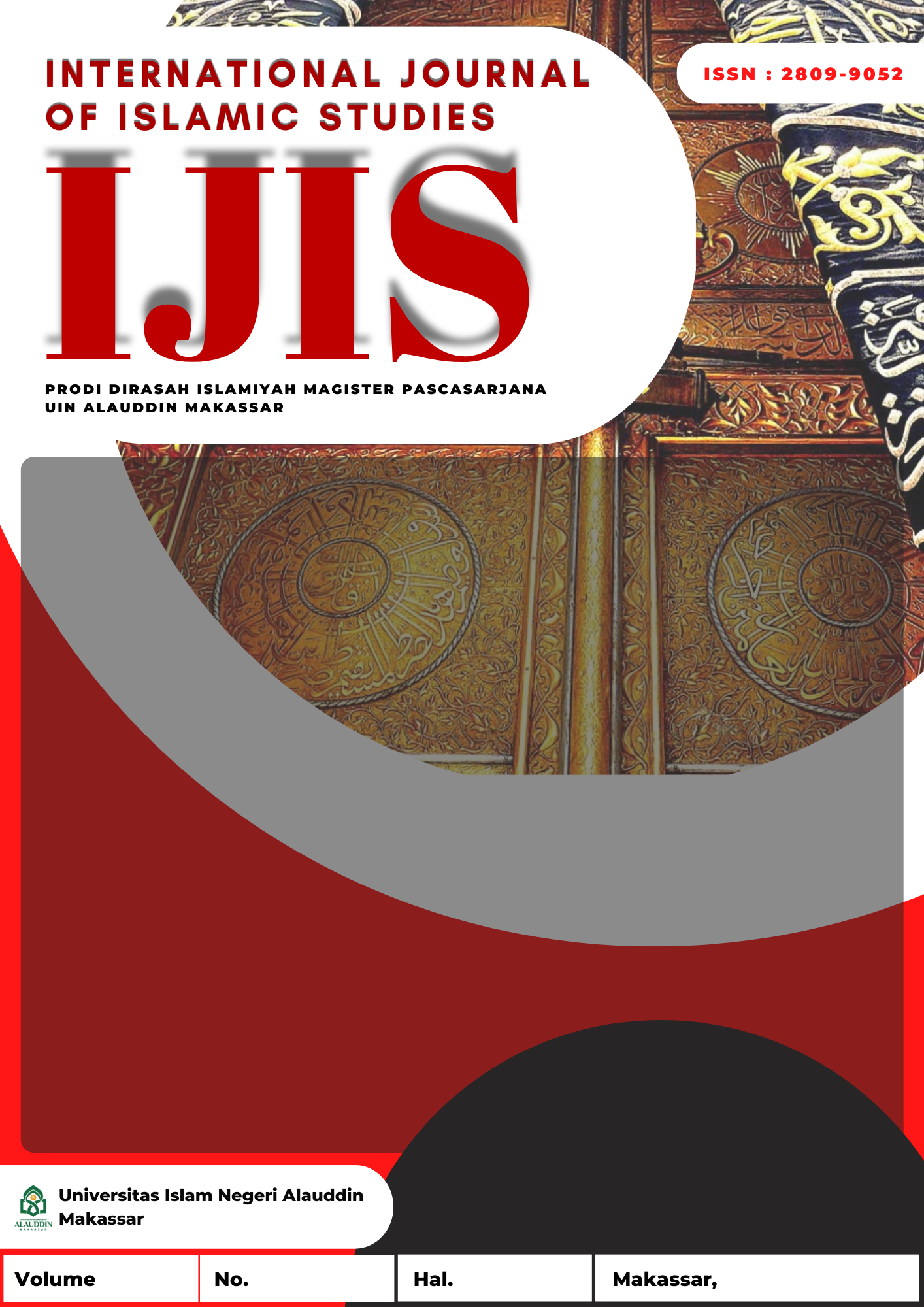An Investigation of The Judge's Ruling on Divorce Due to Apostasy at The Religious Court of South Jakarta, Class IA (Maslahat Perspective)
Abstrak
The main problem of this study is an investigation of the judge's ruling on divorce due to apostasy at the religious court of South Jakarta, class IA (maslahat perspective). This study used qualitative research obtained through field research with a juridical approach. The data sources in this study were judges and clerks at the religious court in South Jakarta. Data collection was carried out through observation, interviews, and documentation methods. Meanwhile, technique processing and analysis of the data were carried out in three stages, namely data reduction, data processing, data presentation, and drawing conclusions. This study showed that: 1) The decision of the judge at the religious court in South Jakarta about the revocation of the marriage of the parties with the excuse of apostasy can be understood as the result of the petitioner, who is apostate. So that he was no longer able to create a sakinah mawaddah wa rahmah family. This has to be done to provide legal certainty and benefits for those who adhere to the Islamic religion. 2) The judge's legal consideration mentioned that the divorce has met the requirements for a good reason. 3) Legal consequences of the judge's ruling on divorce based on the reasons for Article 116 in Compilation of Islamic Law (KHI) points (a) to (g) and based on the reasons for divorce, Article 19 of the Government Regulation of the Republic of Indonesia Number 9 of 1975 about the implementation of Law of the Republic of Indonesia Number 1 of 1974 about marriage. It states that a true divorce will only result in the legal consequences of the extinguished joint property, the husband's rights, the obligation to live together, and parental rights; then it will result in the right of guardianship.
Referensi
Beni fAhmad fSaebani, fFiqh fMunakahat f1, fPustaka fSetia, fBandung, f2009.
Fuad fSaid, fPerceraian fMenurut fHukum fIslam f(Jakarta: fPustaka fAl-Husna).
Harifuddin fCawidu, fKonsep fKufir fdalam fal-Qur`an f(Jakarta: fBulan fBintang, f1991).
Kementrian fAgama fRI, fAl-Qur’an fdan fTerjemahnya, f(Cet.I, fBandung: fPT. fSygma fExamedia fArkanleema. f2009)
Muhammad fIdris fRamulyo, fHukum fPerkawinan fIslam: fSuatu fAnalisis fdari fUndang-Undang fNo.1 fTahun f1974 fdan fKompilasi fHukum fIslam f, fBumi fAngkasa, fJakarta.
Pasal f116 fhuruf ff fKHI fjo fPasal f19 fhuruf f‡f· fPP fNo. f9 fTahun f1975.
R. fWirjono fProdjodikoro, fHukum fPerkawinan fdi fIndonesia, fBandung: fSumur, f1984, fcet. fVIII.
Soerjono fSoekanto, fPengantar fpenelitian fhukum f(jakarta:UII fPress,1986).
Sugiono, fMetode fPenelitian fKualitatif fdan fR&D, f(Cet. fVI, fBandung: fPT. fAlfabeta, f2009).
Sulaiman fRasjid, fFiqh fIslam, fSinar fBaru fAlgensindo, fBandung, f2010.
Undang-undang fNo f1 ftahun f1974 ftentang fPerkawinan. f
##submission.copyrightStatement##
##submission.license.cc.by-nc-sa4.footer##Authors who publish with this journal agree to the following terms:
1) Authors retain copyright and grant the journal right of first publication with the work simultaneously licensed under a Creative Commons Attribution License that allows others to share the work with an acknowledgement of the work's authorship and initial publication in this journal.
2) Authors are able to enter into separate, additional contractual arrangements for the non-exclusive distribution of the journal's published version of the work (e.g., post it to an institutional repository or publish it in a book), with an acknowledgement of its initial publication in this journal.
3)Authors are permitted and encouraged to post their work online (e.g., in institutional repositories or on their website) prior to and during the submission process, as it can lead to productive exchanges, as well as earlier and greater citation of published work (See The Effect of Open Access).







